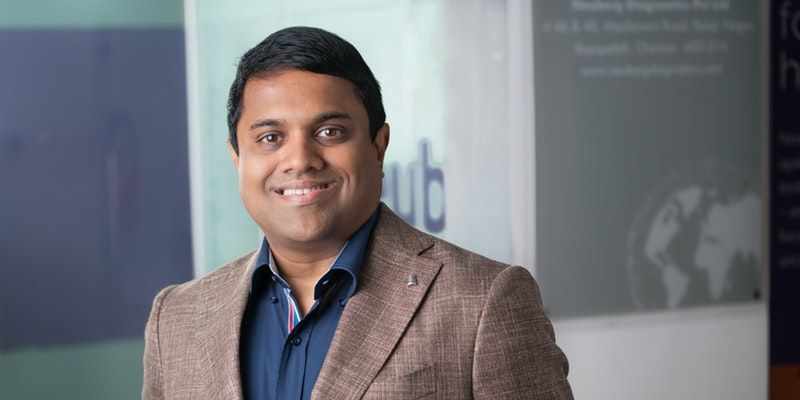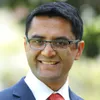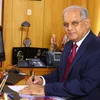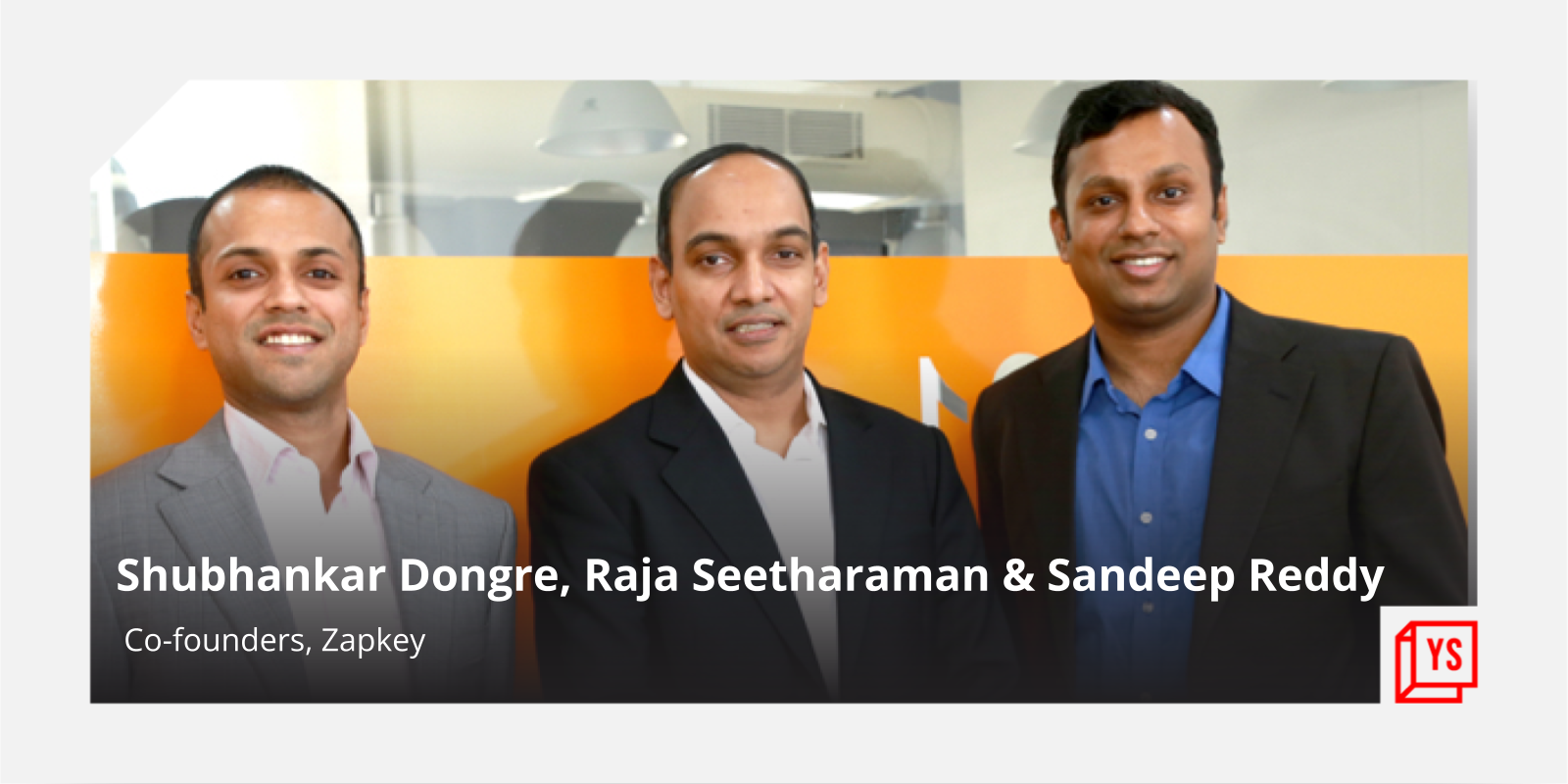How this BITS Pilani graduate built a Rs 700 Cr turnover medical devices business out of Chennai
Hailing from a small town in Tamil Nadu, GSK Velu started Trivitron Healthcare after saving up for five years. Over the next two decades, he built it into one of India’s largest medical devices companies.
When BITS Pilani graduate GSK Velu was young, everyone in his family wanted him to become a doctor. It was a safe bet, and a stable career choice.
For a young man hailing from Aralvaimozhi, a panchayat town in Kanniyakumari district in Tamil Nadu, the word ‘entrepreneur’ was almost alien. Velu says his family didn’t even know the word, let alone ever imagined he would become one.
Today, Velu is a serial entrepreneur, technocrat, and a healthcare industry expert who founded Trivitron Healthcare – a medical technology company based in Chennai with a turnover of Rs 700 crore.
“I always believed in following my passion for healthcare entrepreneurship and learning from failure. It is difficult to learn from success. I am convinced that if one follows their passion and perseveres against all the odds, then the money will follow,” the 52-year-old tells SMBStory.
From employee to entrepreneur
Velu’s stint with healthcare began when he joined BITS Pilani in 1984 for a Bachelor’s Degree in Pharmacy. He graduated in 1988 when he was 19-years-old (he began the course when he was two years younger than his peers).
Then, he joined medical instruments distribution company IMI. “Over the years, I saw the medical device industry in India being dominated by large multinational companies. They had a monopoly in terms of pricing, positioning, and product line,” he says.
This made him feel India needed an indigenous health technology company, which was “local by heart but global in its vision.”
Deciding to provide healthcare solutions at affordable costs to a large section of the Indian society, Velu started Trivitron Healthcare in 1997 with Rs 25 lakh, which he had saved up by working for five years.
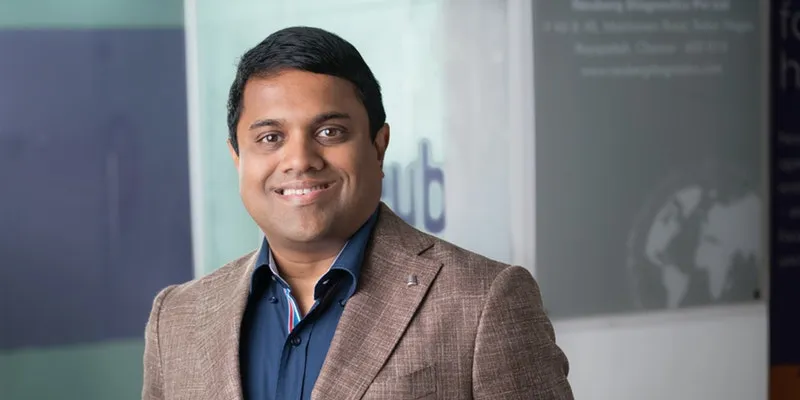
GSK Velu, Founder, Chairman and MD, Trivitron Healthcare
“I started small in Chennai as a medical devices trading company, but I was always determined to get into manufacturing of medical technology equipment,” he says.
Velu didn’t have many people to work with. Everything on the frontend and backend was handled by him. Eventually, he recruited a team and trained them himself. “I invested a lot of time on my people because I knew they would become my greatest strength,” he says.
Trivitron started marketing healthcare products to hospitals, individual healthcare providers, independent clinics and laboratories, extended care facilities, etc.
If you can’t beat them, join them
It was not easy for Velu to penetrate a market dominated by large and established multinational healthcare companies. He decided not to rush things and stayed away from challenging these giants head on.
He recalls, “I was extremely careful in the business. Every strategy, right from getting the right talent on board to conceptualisation of projects and R&D, was well thought-out. I made a conscious decision to reach out to rural markets and gradually added more territories to our reach. Slowly, we got bigger.”
It took Velu 10 years to onboard the top multinational companies as clients and build Trivitron into a popular medical devices trading company. Over this decade, the entrepreneur observed that large healthcare companies (many of whom were his clients) become increasingly interested in setting up camp in India.
They wanted to have their own presence in the country, rather than relying on traders or middlemen. Velu realised he could capitalise on this and become a local manufacturing partner.
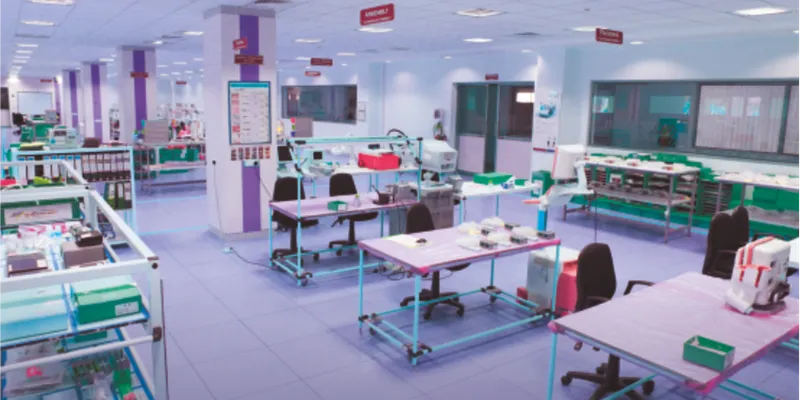
Inside a Trivitron manufacturing facility
“Many of my clients were looking to manufacture in India. I realised the time was right to pivot from trading to manufacturing,” Velu says.
In 2010, an existing partner undertook a joint venture with Velu’s company to manufacture its products in India. The joint venture with Aloka Japan (now Hitachi) saw the establishment of Aloka Trivitron Medical Technology Ltd, in the Trivitron Medical Technology Park (TMTP) near Chennai. It enabled the production of over 1,000 ultrasound machines per year.
Then, the company’s joint venture with Biosystems to make biochemistry reagents paved the way for the launch of Biosystems Trivitron Diagnostics Ltd in the same technology park.
“These joint ventures allowed us to acquire a few healthcare businesses and factories. We ended up acquiring over 10 manufacturing units in six locations – Chennai, Mumbai, Pune, Vantaa, Ankara, and Jinan,” Velu says.
Selling in emerging markets
Collaborating with global healthcare giants helped Trivitron gain access to expertise in technical advancements in the industry. “In our units, we combined these technical advancements with the skills of our people to make advanced medical hardware,” he explains.
The products it made were categorised into three segments: in-vitro diagnostics, imaging products, and critical care equipment.
Velu sold them to hospitals and other healthcare providers at prices that mirrored regional rates.
“We priced our products according to how payment systems customarily worked in the regions we did business. In today’s consumer-savvy world, price point is critical. Price your product too high, and you’re liable to turn off potential customers. Go too low, and you may paint an unflattering picture of your products worth, and this could be just as damaging,” he says.
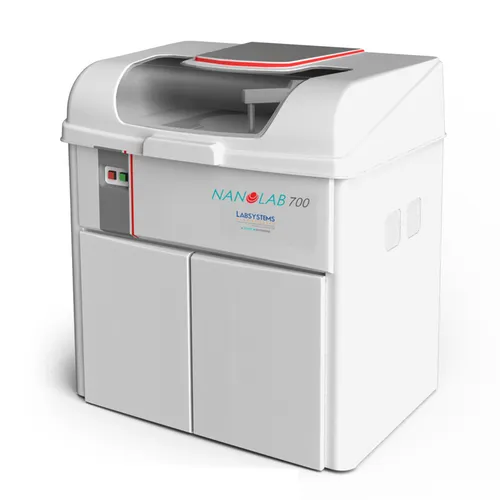
Trivitron's Nanolab device
Velu leveraged his international connections to tap into distributor networks in over 160 countries. “We built a direct presence in major African countries, few European countries, the Middle East and the US. For other parts of the world, we operated through our channel partners,” he says.
But there was a big difference in selling to developed and developing markets. Velu saw that substandard and low-quality medical equipment from other parts of the world were “dumped” in Indian and African markets.
These devices and equipment failed to be at par with global standards in developed countries, and were easy to sell in low-cost, emerging markets.
“The only thing to stop them were some customs-related formalities or checks. Even today, it is tough to make policymakers realise the benefits of superior quality health technology products over substandard ones.”
A hybrid business model
Velu found a different way to lower the cost of his products over their life cycle. He started providing after-sales service because he knew medical technology equipment was highly intricate, and needed trained professionals to operate it. If something went wrong, the cost of fixing the expensive equipment was high.
“In order to help our clients with this, I set up a team of over 200 professional service and application specialists who are available 24x7 to ensure smooth equipment operation,” he says.
Presently, Trivitron’s larger network of distributors comprises over 10,000 workers. It directly employs 1,000, out of which 300 are part of joint ventures.
Through his hybrid business model of manufacturing and distribution, Velu now seeks to make in India with 50 percent local manufacturing and 50 percent international manufacturing. He says this will bring costs down and help him reach many more hospitals.
Velu is looking to further expand into India’s medical devices market – a segment valued at Rs 33,862 crore in 2017 and expected to reach Rs 79,429 crore by the end of 2023, according to a Research and Markets report.
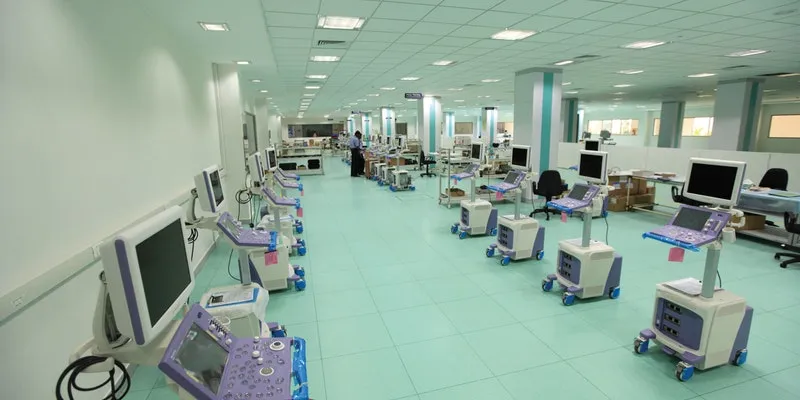
Trivitron's ultrasound devices facility
The entrepreneur’s goals fall in line with the Indian government’s plan to make the country a manufacturing hub for medical devices.
The Indian government has allowed 100 percent FDI (Foreign Direct Investment) under the automatic route for greenfield projects (setting up of brand new facilities) and 100 percent FDI under the government route for brownfield projects (purchase or leasing of existing facilities).
Trivitron is also working to expand its footprints in emerging global markets. It plans to acquire more businesses internationally.
“We want to scale up our manufacturing abilities to an extent that we become a reliable contract manufacturer for leading, global healthcare giants,” Velu says, adding that Trivitron may consider going for an initial public offering in two or three years.
(Edited by Saheli Sen Gupta)





